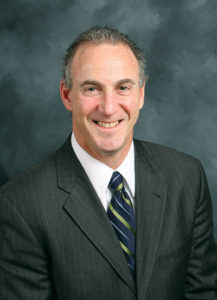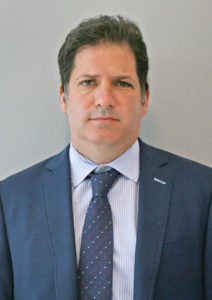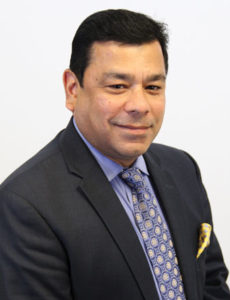NEW YORK—Heading into fourth quarter, it appears the industry continues on a sustained positive track, with the transactions market expected to remain strong. Exceptions likely will be for those with hotel assets in regions recently impacted by natural disasters—Texas, Florida, the Caribbean and Mexico—with much of the damage at press time still being assessed.
To take a pulse on the strength of the buy-sell dynamic, Hotel Business recently caught up with some leading players within the transactions arena to get their thoughts regarding what’s ahead. Sharing insights are Arthur (Art) Adler, chairman/Americas, Hotels & Hospitality Group, JLL; Tony Malk, managing director, Holliday Fenoglio Fowler LP (HFF); and Sanjay Mundra, CEO/chairman, Hospitality Council, SVN Hotels.
How would you characterize the transactions market in 2017?
Adler: We are in what we characterize as a normal, stabilized trading environment. We’re not at a peak like we were in 2015, and we’re not facing any distress in terms of industry fundamentals or the capital markets. There is equilibrium between buyers and sellers, which is why trading activity is strong.
The fact that both the equity and debt capital markets are strong certainly helps transaction activity. Investors are being cautious in their underwriting given that we are nine years deep in the cycle, but virtually everything that we’ve been marketing for sale is trading.
Malk: The sales market has been somewhat of a split market with certain deals getting a lot of focus and attention and other deals not seeing the expected level of activity. Investors seem to have swung between optimism and pessimism at various points during the year. There’s no question that there is demand for high-quality assets and assets with perceived value-add, but the general consensus is those deals have been few and far between. Many investors believe we’re deep into the hotel cycle and that in some cases is creating a more cautious approach toward hotel acquisitions.
The financing market for existing hotels has been very strong in 2017, and we continue to be pleasantly surprised by the debt quotes we’re able to achieve for our clients. In certain cases, it’s been more accretive for our clients to finance an asset rather than sell.
Mundra: 2017 hotel sales volume is down from 2016, but the market is robust. We’ll continue to see good volume.
What do you see driving activity?
Adler: We believe, and the market shares this sentiment, that there is more upside potential in GDP growth, which has been anemic throughout this recovery, than there is downside. There’s a high probability that the current political administration will enact policies, including infrastructure spending and tax reform, that will create a catalyst for economic growth, and the lodging sector stands to benefit from that growth.
Virtually all types of investors, particularly private equity funds and institutional investors, as well as offshore investors, have significant capital to invest. Investors continue to seek out hotels due to the fact that hotels generate significantly better risk-adjusted returns than any other type of real estate. Cap rates are higher, financing is readily available, and you can achieve strong leveraged cash-on-cash returns. Hotels are a very strong asset class and can be purchased on more-favorable terms than any other type of asset.
Malk: There is still a lot of money looking to be placed into the hotel sector. Commercial real estate, in general, continues to benefit from increasing institutional allocations, and more and more traditional real estate investors are entering the hotel world. The United States is viewed as a safe haven for international investors; we continue to see international capital flow to hotels, although the makeup of that capital base has changed in 2017. Private investors and family offices are drawn to the hotel world, and we continuously engage with new sources of capital.
On the seller’s side, we’re seeing groups that have not transacted yet during this cycle push their assets out to market, as well as activity from investors who acquired assets over the past three-to-four years and need to exit during their hold period. Hotel loan sales also are picking up quite a bit compared to the past few years.
Mundra: Availability of favorable financing coupled with low interest rates is driving the activity primarily. Certain markets are seeing organic growth, and the activity also is driven by new brand availability.
Who’s got the upper hand right now (if anyone): buyers or sellers?
Adler: There is equilibrium in the marketplace between buyers and sellers. If anything, the scales are tilted slightly toward sellers. Given the potential for accelerating economic growth, many sellers aren’t facing pressure to sell and have the opportunity to hold their assets.
That being said, buyers are in a similar situation: They don’t have to buy right now. However, investors have raised a significant amount of capital and are seeking to place that capital. Investors are being selective waiting for the right opportunities.
Malk: It depends. If it’s a hotel with a good value-add profile in a sought-after market, there is a deep pool of buyers for that product and the upper hand likely swings toward the sellers. For deals that are viewed as more stabilized or in less sought-after markets, the upper hand rests with the buyers.
Mundra: I think the seller still has the upper hand for now. Things may change as the large pipeline of new hotels comes into play in the next three years.
What hotel segments do you see exhibiting the greatest churn?
Adler: Transaction activity is diverse geographically and spread out across property types. We’re seeing a lot of activity on the West Coast and Hawaii given the stability of those markets and higher barriers to entry. We are also seeing robust activity in the Midwest and the middle of the country, where cap rates are generally higher.
We’re also seeing interest in resort properties given the high barriers to entry and the long lead-time to develop. Given the damage caused by recent hurricanes, many resorts in the Caribbean will be out of service for this—and potentially next—season. As a result, resort markets in Hawaii, Florida and Mexico will benefit from increased business over the next two seasons.
Malk: The limited-service segment is seeing a tremendous amount of activity right now. The limited-service REITs are very active, and there is a field of relatively low-cost, institutional capital that is making a strategic push to aggregate limited-service hotels.
Mundra: Premium-branded, select-service hotels still have the greatest churn. This trend should continue.
How would you characterize valuations in 2017?
Adler: It’s difficult to characterize valuations broadly as every asset in every market is different. Valuations depend on the asset’s cash flow, financeability, capital requirements and upside potential. Specific market dynamics heavily influence valuations as well.
Overall, valuations are slightly up on 2016, but values are relatively stable. Debt spreads have compressed and cash flows are higher this year than last year, both of which support healthy valuations.
Malk: Generally speaking, investors are requiring more yield in 2017 as they believe that they’re buying off peak (or close to peak numbers) unless there are specific asset initiatives to be implemented. Investors continue to underwrite growth, but we are starting to see the projected level of growth taper off.
Mundra: The market is holding… There has been a slight upward trend on cap rates but not by enough to make a huge impact.
What do you see people coming to buy/invest in?
Adler: International buyers and high-net-worth individuals typically want luxury urban properties, which trade at lower cap rates but hold values. Private equity firms are looking for value-add opportunities where they can implement property upgrades or management changes to improve performance. Institutional investors and REITs are seeking more stabilized properties that already have strong cash flow.
In terms of international investors, there’s no better place for them to invest in than North America. The transparency, socio-economic and geopolitical stability, and preservation of principle in both the U.S. and Canada continues to attract significant capital from offshore investors, including sovereign wealth funds, family offices, high-net-worth individuals and syndicators.
Malk: We continue to see significant investor demand for the West Coast hotel markets, particularly in California. Deals that are getting a lot of attention include limited-service hotels, value-add opportunities and university/college markets. We are seeing a large appetite for resorts.
Mundra: Most people are still chasing premium-branded, select-service hotels. Also, I am observing a trend toward the secondary markets. HB




